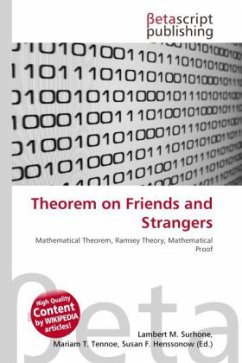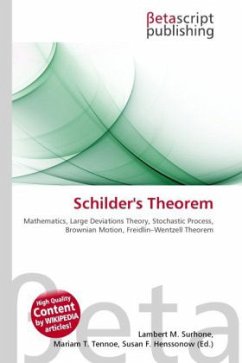
Theorem on Friends and Strangers
Versandkostenfrei!
Versandfertig in 6-10 Tagen
23,99 €
inkl. MwSt.

PAYBACK Punkte
12 °P sammeln!
High Quality Content by WIKIPEDIA articles! The theorem on friends and strangers is a mathematical theorem in an area of mathematics called Ramsey theory. A proof of the theorem requires nothing but a three-step logic. It is convenient to phrase the problem in graph-theoretic language. Suppose a graph has 6 vertices and every pair of vertices is joined by an edge. Such a graph is called a complete graph (because there cannot be any more edges). A complete graph on n, vertices is denoted by the symbol K_n,. Now take a K_6,. It has 15 edges in all. Let the 6 vertices stand for the 6 people in ou...
High Quality Content by WIKIPEDIA articles! The theorem on friends and strangers is a mathematical theorem in an area of mathematics called Ramsey theory. A proof of the theorem requires nothing but a three-step logic. It is convenient to phrase the problem in graph-theoretic language. Suppose a graph has 6 vertices and every pair of vertices is joined by an edge. Such a graph is called a complete graph (because there cannot be any more edges). A complete graph on n, vertices is denoted by the symbol K_n,. Now take a K_6,. It has 15 edges in all. Let the 6 vertices stand for the 6 people in our party. Let the edges be coloured red or blue depending on whether the two people represented by the vertices connected by the edge are mutual strangers or mutual acquaintances, respectively.












